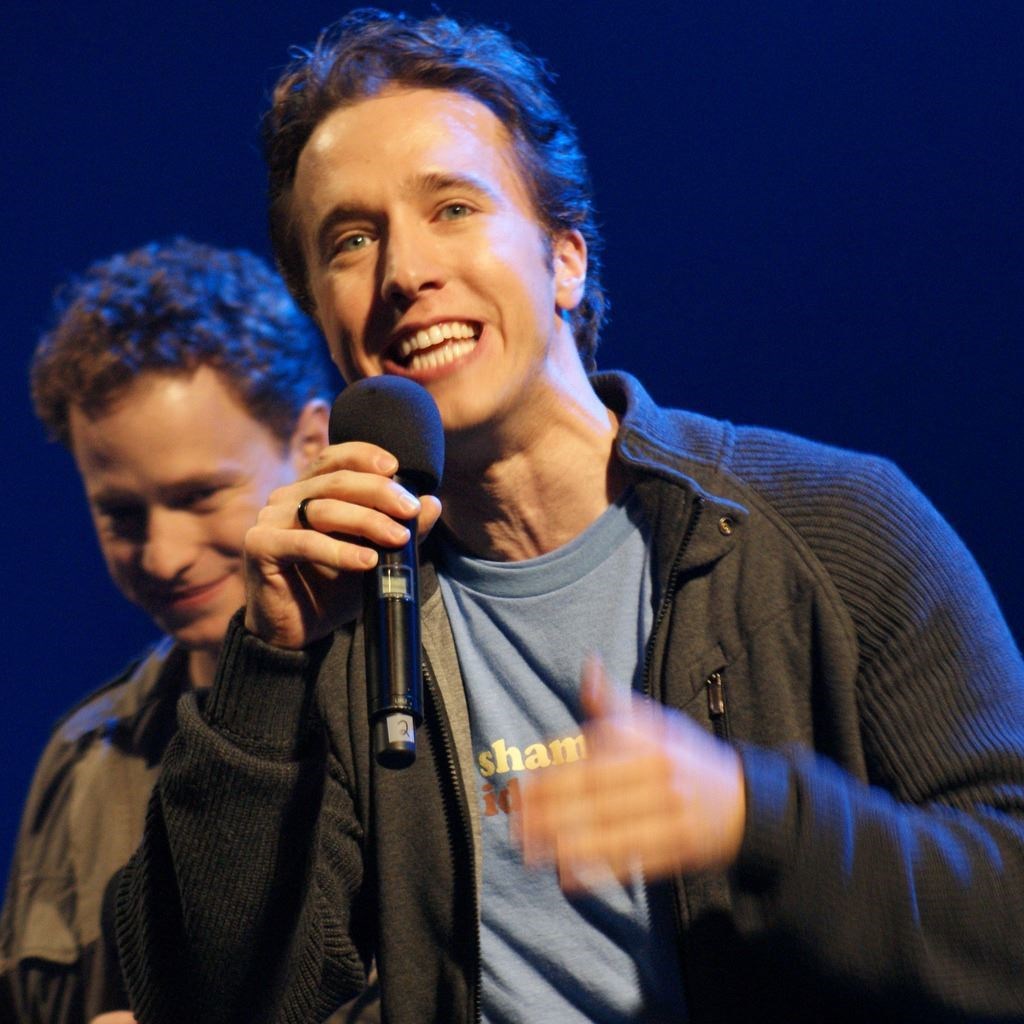"It's our world. Change it." Craig Kielburger
 Craig Kielburger and his brotherSiavash Ghazvinian / CC BY-SA (https://creativecommons.org/licenses/by-sa/3.0)
Craig Kielburger and his brotherSiavash Ghazvinian / CC BY-SA (https://creativecommons.org/licenses/by-sa/3.0)
It started with a single jolt of empathy. Twelve-year-old Craig Kielburger was moved by a picture of another 12-year-old in the newspaper. The picture was of Iqbal Masih, a Pakistani boy who'd been brave enough to fight child slavery and had been murdered for it. Craig started thinking about helping the kids stuck in the uneducated, dirt poor, dead end life of child labor in carpet making half a world away, and then he couldn't stop thinking about it. As one activist died, a second was born. Craig took up the cause of freeing children from slave labor. He knew his goal was huge, but he refused to see his voice as small. Starting with his middle school, he recruited anybody he could get to care. He founded Free the Children with a dozen kids in his bedroom.
The group raised funds however they knew how, from penny drives to piggybanks of birthday money. They talked about the plight of the enslaved kids to anyone who would listen. Craig was a brilliant public speaker, described as "beyond precocious" - a phenomenon might have been a better description. That helped draw attention to the cause, but Craig also simply refused to shut up. When the group raised enough, he headed to south Asia to meet the carpet kids in person, and to witness the realities of their lives.
|
Craig Kielburger Photo courtesy of Wikimedia [public domain] |
What Craig found was daunting. The exploited kids were just kids, albeit robbed of education, healthcare, money, and dignity. There were so many, and they needed so much. Without the carpet factory pennies, most would have nothing to eat. Some of those Free the Children had liberated would end up right back at the factory. Craig felt small, only able to promise the kids he'd keep working on their behalf. But he didn't even know how he was going to do that. He got lucky when the American news program "60 Minutes" did a story on him. But even famous didn't translate to effective. He was overwhelmed. And then he found his answer in the kids back home in Canada. By giving the kids at home a place to empower their compassion, he could make his foundation work both ways. The kids who gave the help were as "freed" as those who needed it.
By 2012, "60 Minutes" had to make a rare second visit. Craig Kielburger was no longer a kid, although his foundation was still full of them, and still dedicated to freeing them. By then in his twenties, Craig and his brother Marc had doubled down and applied a slick business model to their charity. Perhaps most importantly, the Kielburger brothers had made caring cool. And by then they'd studied enough other well-meaning efforts to see where others failed. The brothers formed a separate entity, 'Me to We,' to bring in money. By now large private donations of big money had moved in. The company itself modeled the use of sustainable methods and channeled moneymaking possibilities from Free the Children. Volunteers wore T-shirts that read "Shamelessly Idealistic." The website sold jewelry made with micro loans around the globe. Teenagers could pay for leadership camps. Families could buy volunteering vacations. The financing remained transparent, most of the workers were volunteers, but this branch was run as smoothly as any large company. This branch funneled all profits into the dizzying number of projects occupying Free the Children was working around the world. And few large corporations had any smoother marketing campaigns.
Kid volunteers were rewarded with "We Days" each year that brought together the electric charge of their combined compassion. Tens of thousands filled stadiums to hear entertainment like the Jonas Brothers or such venerable speakers as the Dalai Lama and Desmond Tutu. But even with such stiff competition, it was the Kielburger brothers who brought the young volunteers to their feet. The brothers were always working on better ways to give, more liberating projects, figuring out who could benefit most from what they have. Free the Children was also always channeling new volunteers. There are thousands now. Each of them brings their empathy to the cause of freeing children they will probably never meet. But now, thanks to Craig Kielburger's leadership, they can really care about those kids, because there is a place where their empathy is respected, directed and celebrated.
Page created on 2/28/2015 6:52:27 PM
Last edited 12/17/2020 4:38:30 AM
